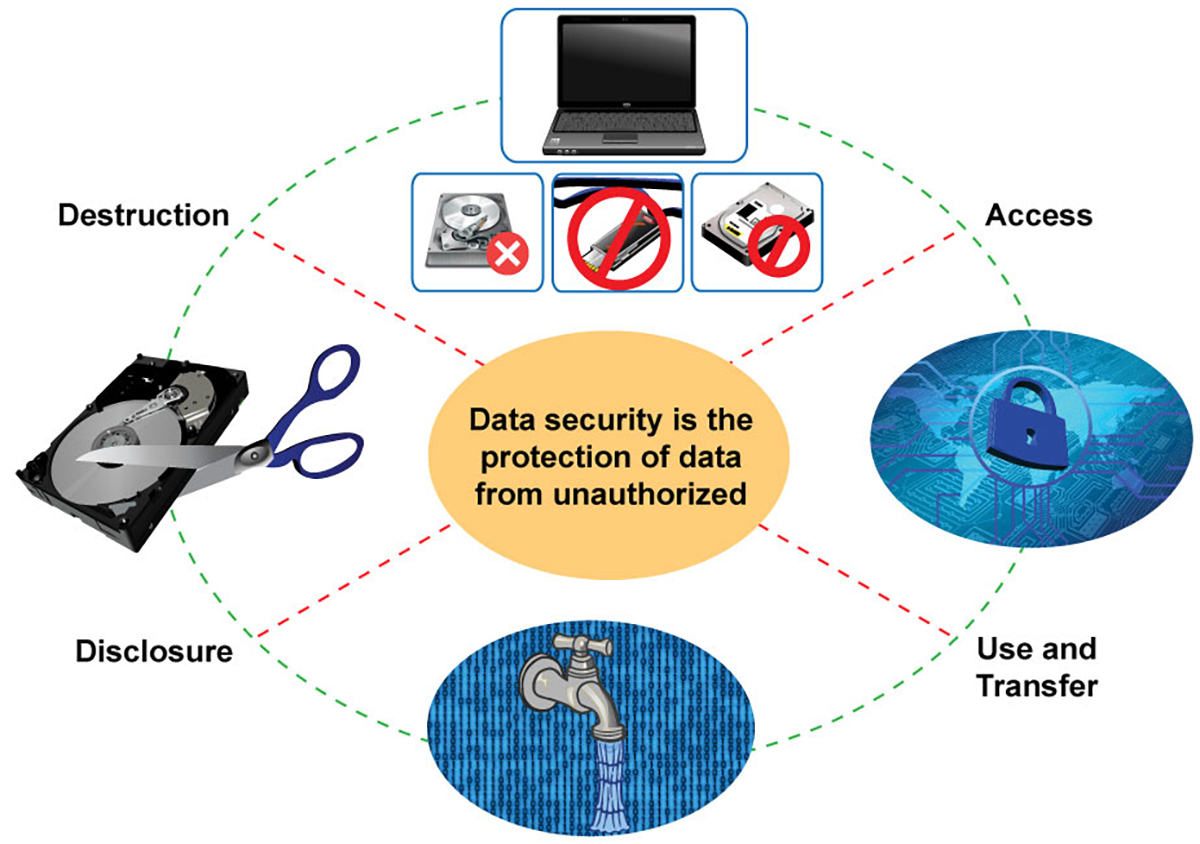The Necessary Nature of Information Damage in Upholding Computer Safety Solutions and Protecting Versus Unauthorized Accessibility
In an era where data breaches and identity burglary are significantly prevalent, the value of reliable information devastation can not be overstated. Organizations should recognize that the failure to properly take care of delicate information presents not only lawful and financial dangers however likewise a possible disintegration of customer count on. Different approaches, from data cleaning to physical devastation, act as essential safeguards versus unauthorized access. Comprehending the effects of data devastation techniques and compliance with guidelines raises vital inquiries concerning the competence of existing approaches and their lasting practicality in the face of evolving dangers.
Importance of Information Devastation
In a progressively electronic globe, the importance of data devastation can not be overstated. As organizations generate vast amounts of delicate information, the prospective effects of failing to correctly take care of and get rid of of that information become progressively severe. Data breaches, identification burglary, and corporate espionage present substantial threats, underscoring the requirement of effective data destruction practices.

Furthermore, as modern technology develops, so also do the methods through which malicious actors look for to exploit delicate information. Organizations needs to continue to be positive and cautious in their data damage approaches to safeguard against these developing hazards. By prioritizing data damage, business not just protect their possessions yet also foster depend on amongst stakeholders and clients, showing a commitment to accountable information management and safety practices.
Techniques of Effective Information Devastation
To ensure the total and permanent destruction of sensitive information, companies can use a variety of efficient techniques customized to their certain demands. Among one of the most typical techniques is data wiping, which includes utilizing specialized software application to overwrite existing information several times, making recuperation virtually impossible. This is particularly useful for solid-state drives and hard drives, where conventional deletion methods are poor.
Another reliable strategy is degaussing, which makes use of solid magnetic fields to disrupt the magnetic domains on storage space media, providing the information irretrievable. This method is especially suited for magnetic storage space gadgets, such as tape drives and hard disks.
Physical devastation is likewise a practical option, entailing the shredding, squashing, or incineration of storage devices. This approach assurances that data can not be recouped, making it excellent for companies dealing with extremely sensitive details.

Conformity With Information Protection Laws
Organizations have to not only concentrate on effective information destruction methods yet additionally make sure conformity with information defense regulations that control just how sensitive info is managed and gotten rid of. Sticking to these laws is important for keeping and safeguarding personal data client depend on. Regulations such as the General Data Security Policy (GDPR) in the European Union and the Medical Insurance Transportability and Liability Act (HIPAA) in the USA enforce stringent guidelines on data administration, which include demands for the protected disposal of sensitive information.
To achieve conformity, companies have to apply thorough information damage plans that line up with these legal frameworks. This includes identifying information that calls for devastation, establishing protocols for secure methodsâEUR" such as shredding physical media or using software that fulfills market requirements for data wipingâEUR" and keeping in-depth records of destruction tasks. Normal audits must be carried out to guarantee adherence to these policies and to recognize any type of potential locations for enhancement.
Failure to abide with data protection guidelines can result in significant lawful ramifications, consisting of large fines and damages to an organization's credibility. Therefore, incorporating conformity into information damage methods is not only a lawful responsibility yet additionally an important part of a durable information safety method.
Repercussions of Poor Information Handling
Poor data handling can result in extreme repercussions that expand beyond immediate functional problems. Organizations might deal with significant economic losses because of data breaches, which frequently cause costly removal efforts, lawful charges, and governing penalties. These economic ramifications can stress resources and hinder development, eventually impacting a company's lower line.
Moreover, inadequate data handling can badly harm a company's reputation. Stakeholders, customers, and partners may lose count on in an entity that stops working to secure delicate details, causing lowered client commitment and prospective loss of service chances. This erosion of depend on can take years to restore, if it can be navigate here recovered in all.
Furthermore, organizations could encounter lawful implications occurring from non-compliance with data protection laws. Such offenses might lead to fines and examinations, worsening the monetary concern and additional tainting the organization's photo.
In the world of cybersecurity, insufficient data monitoring methods can produce susceptabilities that make systems extra prone to unauthorized accessibility and cyberattacks. Eventually, these consequences emphasize the essential value of carrying out robust information managing procedures to guard delicate information and keep organizational honesty.
Finest Practices for Secure Data Disposal


To start with, data ought to be identified according to its level of sensitivity. Sensitive information needs extra rigorous disposal methods, such as shredding physical files and using sophisticated software program for electronic data wiping. Utilizing qualified data why not check here destruction services makes certain compliance with market policies and requirements.
Second of all, organizations ought to carry out an information disposal plan that mandates regular audits. This policy needs to lay out the treatments for information retention and devastation, making certain that out-of-date information is dealt with without delay and firmly. Educating staff members on these procedures is important to cultivating a society of safety understanding.
Finally, maintaining detailed records of disposed information boosts liability and supplies a clear audit trail. This documentation should consist of the sort of data destroyed, the method used, and the day of disposal.
Verdict
Adopting robust approaches such as data cleaning, degaussing, and physical destruction, together with compliance with policies like GDPR and HIPAA, like this is important for safeguarding delicate information. Ignoring proper information disposal practices can lead to serious effects, including data violations and legal effects.
In an age where information breaches and identification theft are significantly common, the value of efficient information devastation can not be overstated. data destruction. Information violations, identification theft, and business espionage posture significant risks, emphasizing the need of reliable information destruction practices
Compliance with guidelines such as GDPR and HIPAA requireds that companies implement stringent data protection steps, consisting of the safe and secure destruction of data at the end of its lifecycle.
By prioritizing data destruction, companies not only protect their assets but also foster trust among clients and stakeholders, showing a dedication to liable information administration and safety methods.
Organizations need to not only focus on effective data destruction methods but also guarantee conformity with information protection regulations that govern how sensitive information is dealt with and disposed of.